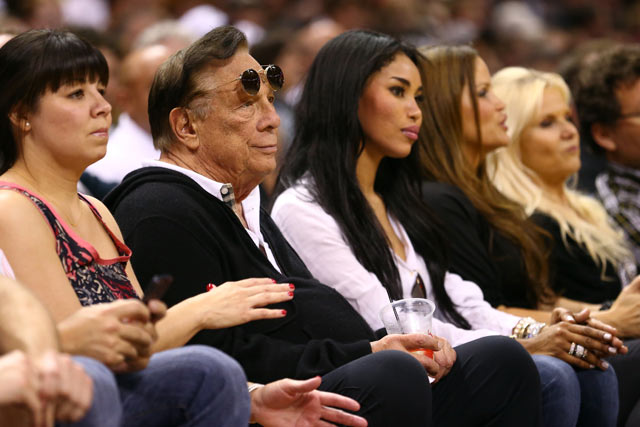Donald Sterling has managed to blow the lid off one one of the worst kept secrets in professional sports and out himself as a racist.
Over the weekend, TMZ unearthed recordings of the Los Angeles Clippers owner going on a bizarre rant to his black and Mexican then-girlfriend V. Stiviano about taking photos with black people (in this case, Magic Johnson) and posting them on Instagram. The recordings, some of which Deadspin released in full on Sunday, are an example of an 80-year-old man who can’t seem to reconcile the fact that not wanting to be seen in public with black people is, in fact, a form of racism. But even worse has been the public discourse that’s followed — the pundits, the protests — that seem to make being called a racist worse than actually engaging in racist practices.
It’s a distinction that Jay Smooth nailed in a new video on the matter. "Why do racist words bring more accountability than racist practices?"
Sterling has long been a hated man in Southern California’s communities of color, but not just because of his NBA team’s mostly losing records. In 2009, Sterling, who also owns a slew of apartment buildings in the Los Angeles area, agreed to pay $2.725 million settlement — the largest monetary payment ever obtained by the Department of Justice — to settle a housing discrimination suit. According to a press release from the DOJ:
The lawsuit, filed by the Justice Department in August 2006, alleged that the defendants, Donald T. Sterling, his wife Rochelle Sterling and the Sterling Family Trust, engaged in discriminatory rental practices on the basis of race, national origin and familial status (having children under 18) at various apartment buildings that they own and manage in Los Angeles. Among other things, the suit alleged that the defendants discriminated against non-Korean tenants and prospective tenants at buildings the defendants owned in the Koreatown area of Los Angeles.
In court filings, for example, the United States presented evidence that the defendants’ employees prepared internal reports that identified the race of tenants at properties the defendants purchased in Koreatown. Additionally, the defendants made statements to employees at Koreatown buildings indicating that African-Americans and Hispanics were not desirable tenants. The United States also presented expert analysis in court filings showing that the defendants rented to far fewer Hispanics and African-Americans in Koreatown which than would be expected based on income and other demographic characteristics.
The defendants, who manage their apartments under the name Beverly Hills Properties, own and manage approximately 119 apartment buildings comprising over 5,000 apartments in Los Angeles County. The settlement would also resolve two related lawsuits filed by former tenants at one of the properties. The two families, an African-American family and an interracial married couple with bi-racial children, alleged that the defendants demolished the private yards that had been part of their apartment and took other actions against them because of their race.
Sterlings actions aren’t new. But maybe now that public pressure is mountaing for him to sell his team, Sterling is finally about to feel the consequences.
